Did you know who the last Derby County player was to be capped by England at full international level, 20 years ago?
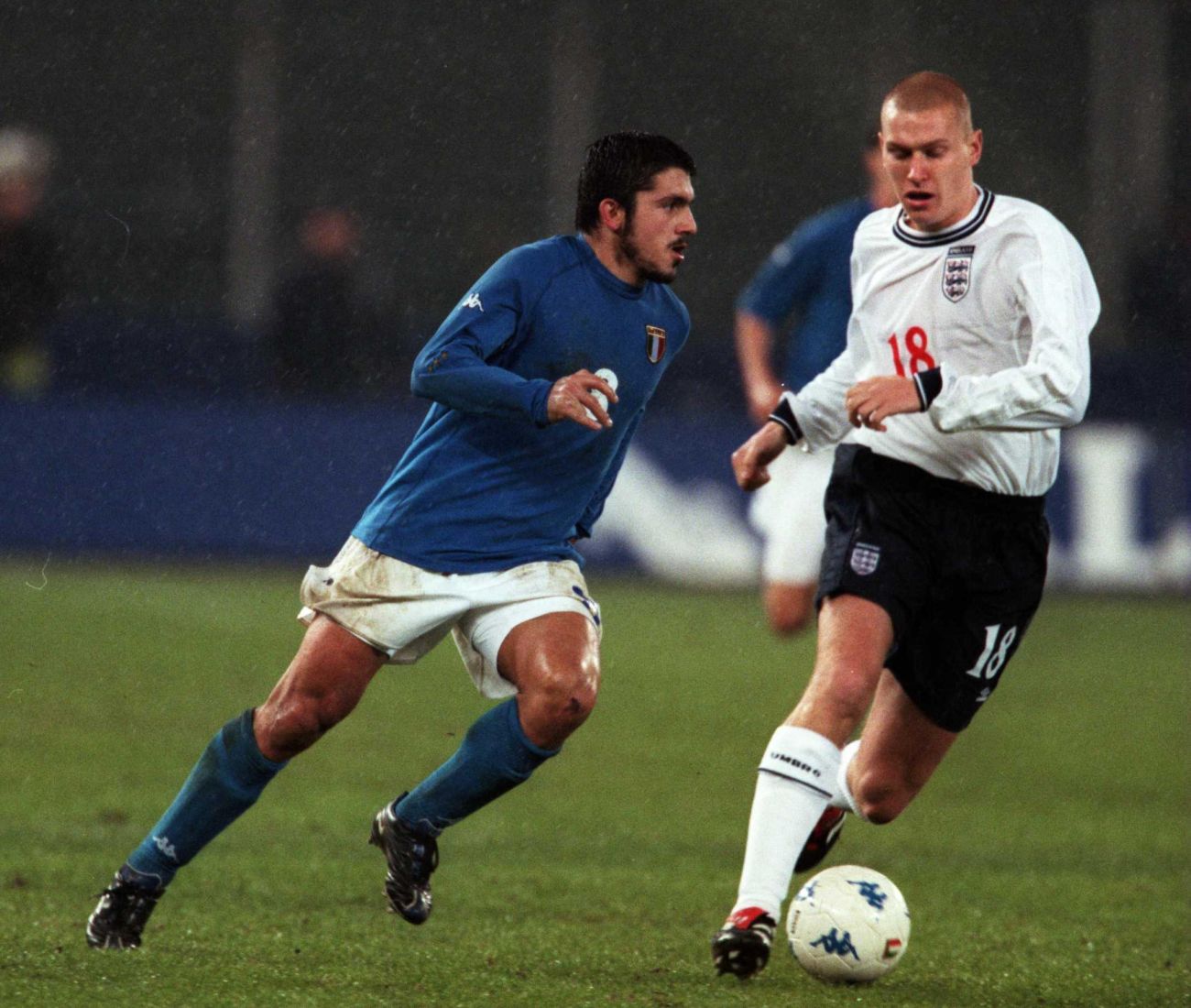
It’s a good quiz question, actually.
The answer is Seth Johnson, who came off the bench for the Three Lions against Italy in November 2000.
Johnson came off the bench for the final 17 minutes of England’s 1-0 friendly loss to Italy in Turin.
Peter Taylor was in charge of the side on the night in the lead-up to Sven-Goran Eriksson’s appointment.
Taylor named an experimental side and Johnson was given a run-out in the second half as he replaced Gareth Barry.
In doing so, he joined an illustrious list of Derby players to have represented England including Steve Bloomer, Roy McFarland, Sammy Crooks, Kevin Hector, David Nish, Colin Todd, Peter Shilton, Mark Wright and many others.
The only player who has come close since 2000 was goalkeeper Frank Fielding, who was called up to the national squad in 2011 for their 2012 European Championships qualifiers against Bulgaria and Wales.
Now 41, Johnson enjoyed two spells with the Rams between 1999-2001 and 2005-2007 after signing from Crewe Alexandra.
Between 2001 and 2005 Johnson wore the colours of Leeds United after a £7 million move to Elland Road in October 2001, but injuries limited his appearances before he returned to Pride Park soon after leaving Leeds.
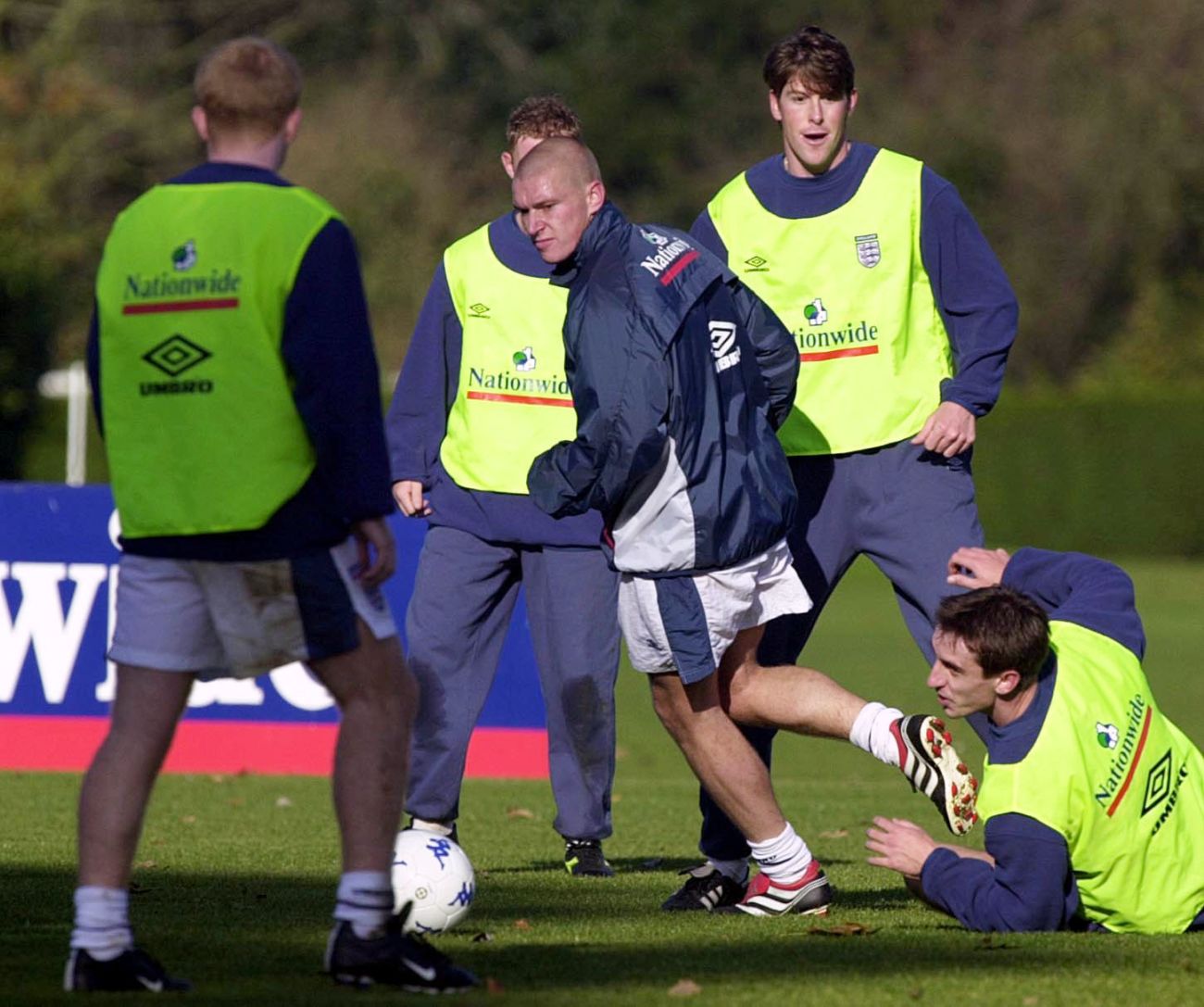
His final appearance for the Rams came in the 2007 Play-Off Final triumph over West Bromwich Albion and he remains a popular figure amongst supporters.
Going back to his single international cap, does he take pride in gaining just the one cap for his country or is there an element of regret he was unable to add to that number?
“You can look at it both ways really,” he admitted in an interview with dcfc.co.uk in 2016.
“I was surprised to get the call up in the first place, but when you’re growing up you want to play for your country.
“I was in my early 20s and managed to get a full England cap, it was amazing for me but also surreal as an experience.
“I do wish I’d gone on to get more caps, but it wasn’t meant to be and I feel very lucky to have got one.”
Looking back on his initial move to Derby in the summer of 1999, Johnson says he was relishing the prospect of stepping up to the Premier League.
He had made just over 100 appearances for Crewe, after coming through their youth set-up, and had been attracting the attention of various clubs.
Jim Smith was the man to bring Johnson to Pride Park and he admits he will always be grateful to the late former Derby boss for giving him the chance to play at the highest level.
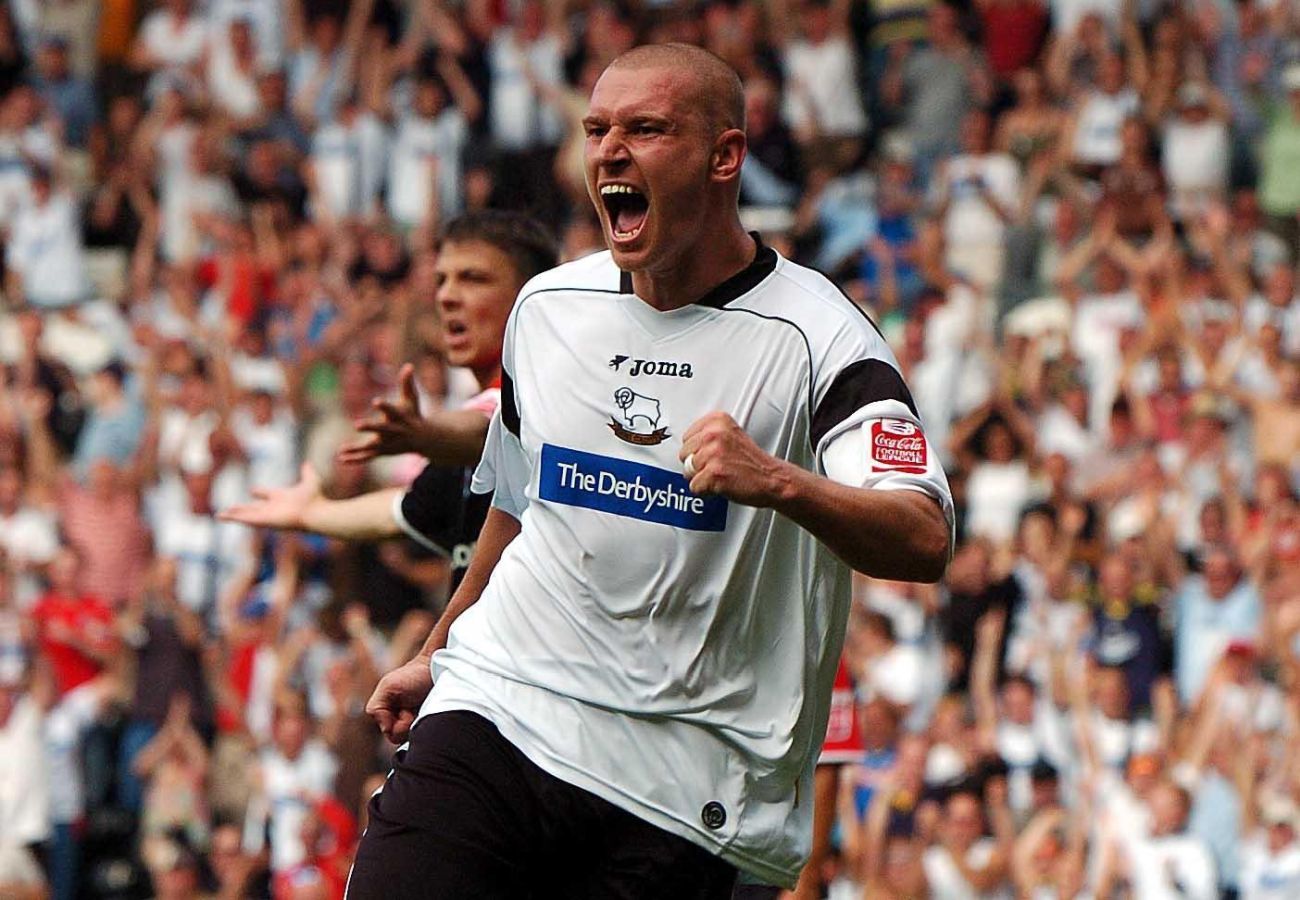
“My first spell at the club was a massive move for me coming from Crewe,” he admitted.
“I went from playing in front of about 5,000 fans every week to being on the pitch at full-house at Pride Park in the Premier League.
“I haven’t been the type of person that suffered from nerves and I had a few months knowing that I would me moving on and Derby had been in a few times for me. Crewe were in the Championship at the time, but they needed the money and I was itching to make that next step.
“It was amazing and also what I had always wanted to do, so I’ll always be thankful to Jim Smith for giving me that chance.
“I was only here for a couple of years, but it was a brilliant time and I loved it. We were involved in a few relegation battles, so it wasn’t the best time in terms of results, but we did manage to stay up.”
Johnson has conceded that his move to Leeds didn’t work out owing to a combination of injuries and poor form.
After leaving Elland Road ahead of the 2005/06 campaign, he returned to Pride Park as then-manager Phil Brown secured his services – and he was desperate to prove himself.
“I was very happy to come back and it’s well publicised how my time at Leeds unfolded,” he said.
“It didn’t go the way myself or the club wanted it; I had injuries and also didn’t play too well when I did get in the team.
“When I returned to Derby I was fully-fit; I had snapped my cruciate ligament the year before but I got myself fit and I was raring to go.
“I knew I needed to prove myself again; I had been at Leeds for four years and only played about 50-odd games.
“It was a great move for me and I felt at home coming back; we struggled as a team in that first year but I enjoyed being back and playing again.”
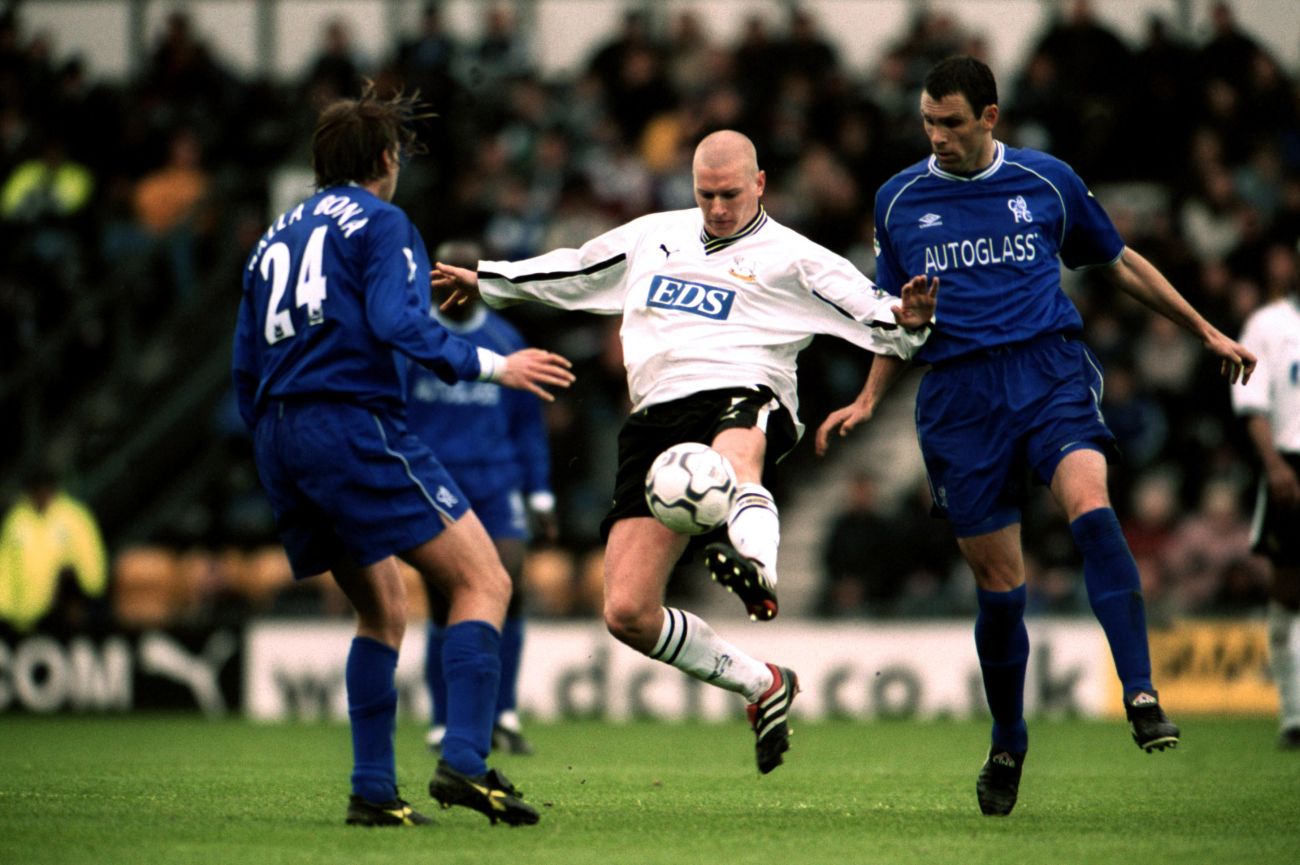
Johnson scored the first goal of the Billy Davies era in August 2006 against Southampton, in a 2-2 draw on home turf, and played 33 times in all competitions.
A serious knee injury, sustained in the latter stages of the Play-Off Final win over West Bromwich Albion in May 2007, brought his career to an unexpected halt.
He explained: “When I got the injury, there was no-one near me and all sorts of things were going off in my head.
“I’d obviously had some knee injuries previously so I knew it might be my last game because of how my knee went.
“The surgeon advised me to pack it in and because I was out of contract, I didn’t want to go to another club injured. I didn’t think it would be right.
“It was obviously a sad day to end my career, but we got promoted and that’s a nice way to go out with a promotion.”
He added: “I’d like to think I will be remembered as a player that gave their all and loved playing for the club. It was an honour to play for a club of this size and stature; I loved every minute of it.”
In his two spells combined, Johnson made just under 150 appearances for Derby in total alongside six goals.
Hanging up his boots at the age of 28 was tough to take, so does he still miss the game he loves?
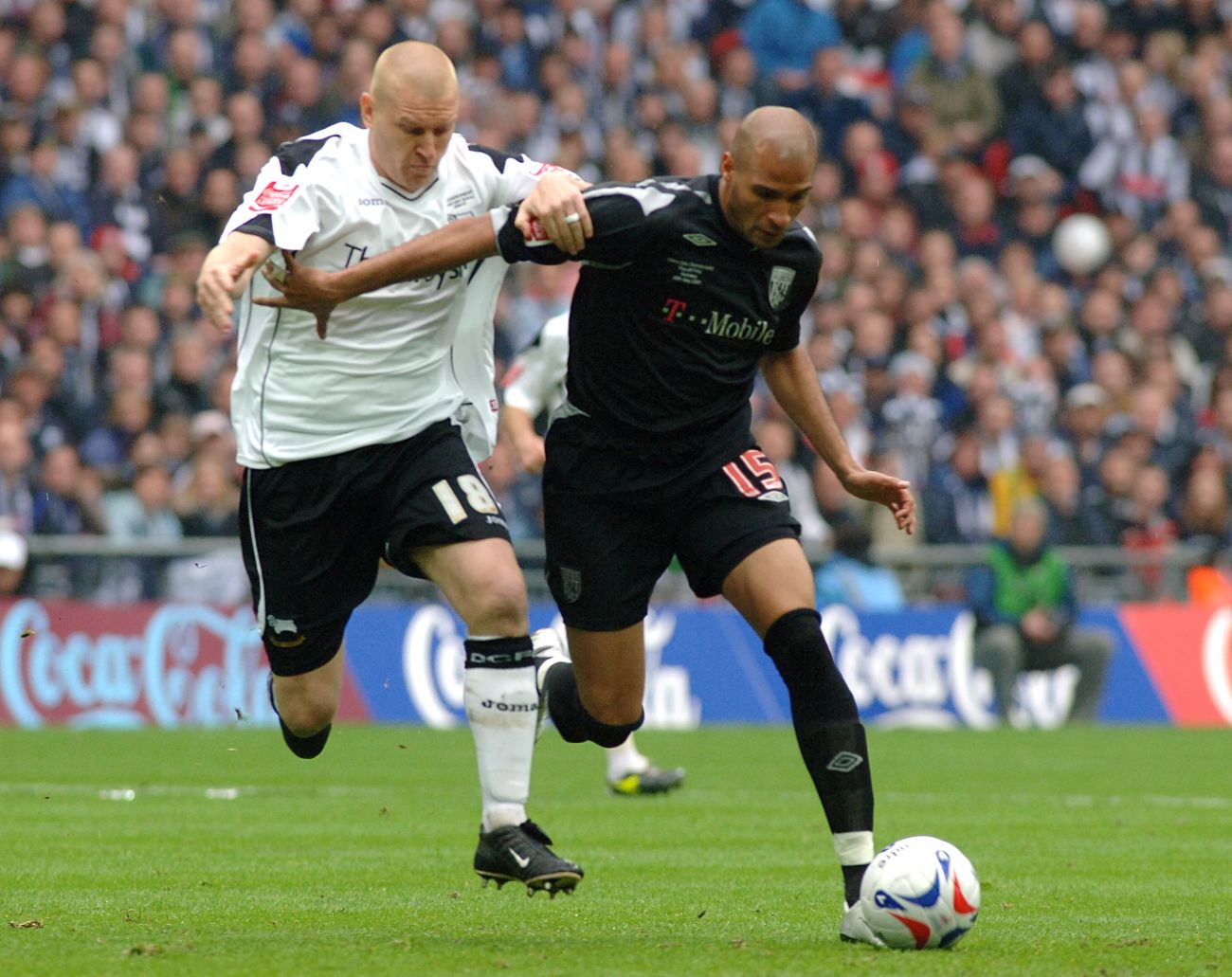
“I miss it like mad,” he admitted.
“I’ve been to a few games over the years and it’s not just the matches, it’s the everyday things of being around a football club and banter with other players.
“Matchdays, I have to say, provide a feeling like no other with an adrenalin rush like no other being out on the pitch.”
No matter what, Johnson has his place alongside some elite names in Derby County history – and no-one can take that England cap away from him.

.jpg)
























